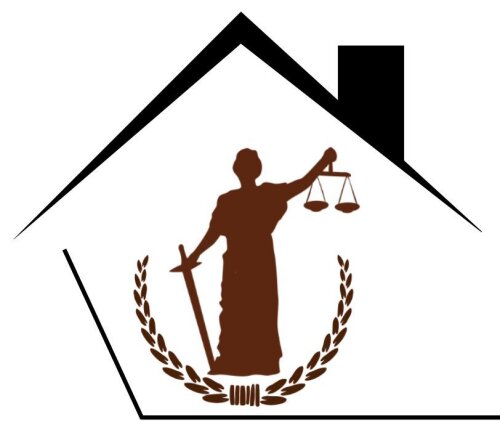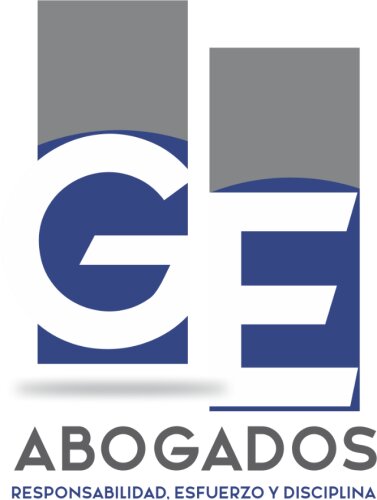Best Conveyancing Lawyers in Santa Marta
Share your needs with us, get contacted by law firms.
Free. Takes 2 min.
Free Guide to Hiring a Real Estate Lawyer
List of the best lawyers in Santa Marta, Colombia
About Conveyancing Law in Santa Marta, Colombia
Conveyancing in Santa Marta, Colombia, refers to the legal process of transferring ownership of property from one person or entity to another. This involves multiple steps, including verifying property rights, ensuring the property is free of debts and liens, preparing sale and purchase agreements, and registering the transaction with the appropriate authorities. Due to Santa Marta’s coastal location and its popularity as a tourist and investment destination, conveyancing here often involves both residential and commercial real estate, as well as rural or beach properties. The process is strictly regulated by Colombian law, and careful compliance with local requirements is essential to avoid disputes or future legal issues.
Why You May Need a Lawyer
Several scenarios may require the assistance of a lawyer specializing in conveyancing in Santa Marta. These include:
- Purchasing or selling a property for the first time and needing guidance through the legal steps and documentation.
- Foreign nationals investing in property who need to navigate local regulations and language barriers.
- Verifying the legality of property titles, boundaries, and ensuring there are no outstanding mortgages or liens.
- Resolving family inheritance issues, such as transferring property as part of an estate.
- Handling disputes regarding property boundaries, co-ownership, or construction permits.
- Assisting with zoning laws and land use regulations for investment or development projects.
Legal advice is crucial to protect your investment, prevent fraud, and ensure that the transaction complies with Colombian and local law.
Local Laws Overview
Conveyancing in Santa Marta is governed by both national and local legislation. Key legal considerations include:
- Property Registration: All property transactions must be registered at the local Registry Office (Oficina de Registro de Instrumentos Públicos), which issues the final certificate of title.
- Public Escrituras: Property transfers are formalized with a public deed (escritura pública), prepared by a notary and signed by both parties in the presence of witnesses.
- Tax Obligations: Various taxes apply, such as the property transfer tax (impuesto de registro) and municipal taxes. Proof of tax payments is required for registration.
- Due Diligence: Buyers and sellers are expected to undertake a due diligence process, which involves reviewing the property's legal history, ownership, outstanding debts, and municipality requirements.
- Foreign Investment Regulations: Foreigners can own property but must comply with reporting requirements to the central bank for foreign currency transactions and investments.
- Rural and Coastal Regulations: Some areas in Santa Marta are subject to additional restrictions, especially near the coastline, indigenous territories, or protected areas.
Failure to comply with local laws can invalidate the transaction or lead to significant legal and financial liabilities.
Frequently Asked Questions
What are the basic steps in the conveyancing process in Santa Marta?
The process usually includes property due diligence, negotiating a sale agreement, signing a public deed before a notary, paying required taxes, and registering the transaction with the local Registry Office.
Do I need to be present in Santa Marta to buy or sell property?
No, you can appoint a legal representative through a power of attorney. However, some transactions may require your physical presence for certain signatures or verification.
Are foreign nationals allowed to own property in Santa Marta?
Yes, foreigners have the same property ownership rights as Colombians, with some additional requirements for reporting investments with the central bank.
What is a public deed (escritura pública) and why is it necessary?
It is a legal document prepared by a notary that formally records the transfer of property ownership. Without it, the transaction is not valid under Colombian law.
How much are the taxes and fees involved in a property transfer?
Typical costs include notary fees, the property transfer tax (around 1 percent of the property value), registration fees, and any applicable municipal taxes. The exact amount depends on the property value and location.
What documents are required for a property sale or purchase?
You will need identification documents, the property title, past tax receipts, proof of no outstanding debts, and the public deed of sale, among others.
How do I verify that a property is free of debts or legal disputes?
A lawyer or notary can conduct a title search at the local Registry Office and review legal documents to confirm the property’s status.
What happens after the public deed is signed?
The signed deed must be registered at the Registry Office. The buyer then receives an updated certificate of title, establishing them as the new legal owner.
Can I finance a property purchase through a mortgage in Colombia?
Yes, mortgages are available from Colombian banks, though eligibility and conditions may differ for foreign buyers and non-residents.
What risks are involved in purchasing property without legal advice?
Possible risks include fraud, hidden debts, unclear ownership, unpaid taxes, or future disputes. Legal advice helps safeguard your investment and ensures compliance.
Additional Resources
If you need information or assistance with conveyancing in Santa Marta, the following resources can be helpful:
- Oficina de Registro de Instrumentos Públicos - Local property registration authority handling title and records.
- Notarías - Notary offices throughout Santa Marta for preparing and witnessing public deeds.
- Superintendencia de Notariado y Registro - National body overseeing notaries and registries.
- Alcaldía de Santa Marta - City Hall for municipal permits, zoning information, and tax payments.
- Colombian Bar Association (Colegio de Abogados) - Offers listings of qualified conveyancing law specialists.
- Legal Aid Organizations - Various groups provide assistance and advice for property-related issues.
Next Steps
If you are considering buying or selling property in Santa Marta, Colombia, it is important to:
- Gather all available documents related to the property, including title, tax receipts, and owner identification.
- Consult a licensed conveyancing lawyer in Santa Marta to review your documents and explain the process.
- Arrange for a thorough due diligence investigation to identify any legal issues or debts.
- Plan for tax payments and registration fees ahead of time to avoid delays in closing the transaction.
- Use the services of an official notary when signing the public deed to ensure all legal requirements are met.
Obtaining professional legal advice reduces the risks associated with property transactions and ensures that your rights and interests are fully protected.
Lawzana helps you find the best lawyers and law firms in Santa Marta through a curated and pre-screened list of qualified legal professionals. Our platform offers rankings and detailed profiles of attorneys and law firms, allowing you to compare based on practice areas, including Conveyancing, experience, and client feedback.
Each profile includes a description of the firm's areas of practice, client reviews, team members and partners, year of establishment, spoken languages, office locations, contact information, social media presence, and any published articles or resources. Most firms on our platform speak English and are experienced in both local and international legal matters.
Get a quote from top-rated law firms in Santa Marta, Colombia — quickly, securely, and without unnecessary hassle.
Disclaimer:
The information provided on this page is for general informational purposes only and does not constitute legal advice. While we strive to ensure the accuracy and relevance of the content, legal information may change over time, and interpretations of the law can vary. You should always consult with a qualified legal professional for advice specific to your situation.
We disclaim all liability for actions taken or not taken based on the content of this page. If you believe any information is incorrect or outdated, please contact us, and we will review and update it where appropriate.









